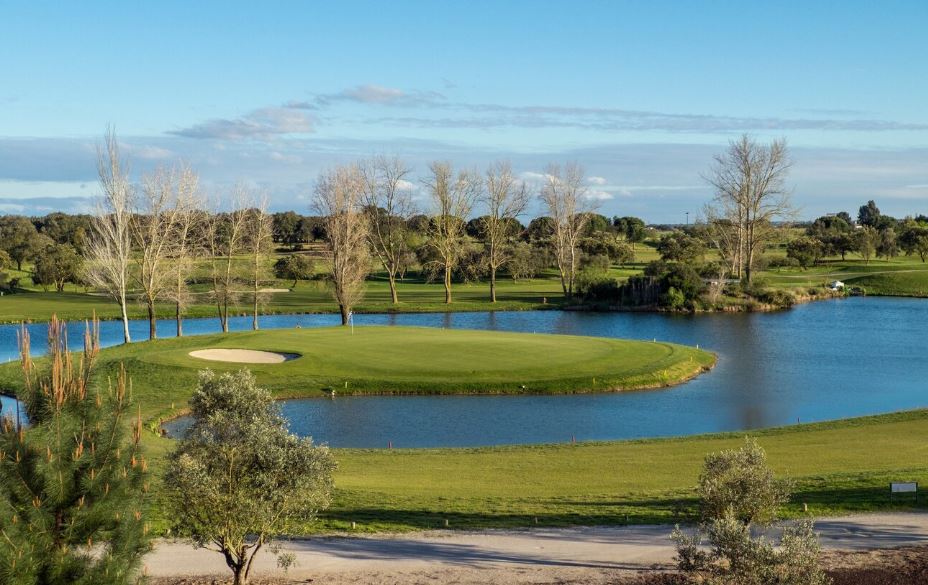
The Trump Organization has started construction on a $1.5 billion luxury resort and golf course in the northern Vietnamese province of Hung Yen, a dramatic move that has drawn praise and criticism. One of the biggest luxury resorts in Southeast Asia, the development is set to include two top-notch golf courses, a five-star hotel, and luxurious villas. But this endeavor is more than just luxurious lodging and immaculate golf courses; it’s a well-timed diplomatic maneuver that blends business and international relations.
Vietnam has accelerated the resort’s approval process while ignoring many standard regulations due to pressure from intensifying trade negotiations with the United States. The nation’s leadership has demonstrated incredible adaptability in expediting this ambitious project despite the impending threat of steep tariffs imposed by the Trump administration. The resort’s quick growth and Vietnam’s growing economic connections to the Trump family business make for an interesting example of how luxury real estate and international politics are unexpectedly combining.
| Resort Features | Details |
|---|---|
| Project Name | Trump International Hung Yen |
| Location | Hung Yen Province, Vietnam |
| Project Size | 990 hectares |
| Key Features | 2 Trump-branded golf courses, 5-star hotel, luxury villas |
| Estimated Cost | $1.5 billion |
| Completion Date | Estimated 2027 |
| Partners | Trump Organization, Kinh Bac City Development Corp. |
The Strategic Value of Trump’s $1.5 Billion Resort in Vietnam
The $1.5 billion resort complex owned by the Trump Organization serves as a diplomatic tool in the ongoing trade talks between the United States and Vietnam in addition to being an investment in luxury. This ambitious project, which is situated on a sprawling 990-hectare property along the Red River, aims to establish Vietnam as a top destination for luxury travel and investment worldwide. Trump-branded golf courses created by U.S. Open champion Bryson DeChambeau and a top-notch hotel serving the world’s elite are features of the resort.
Vietnamese officials have made it apparent why they believe this project should be given top priority. This resort is viewed as a calculated move to build goodwill with the Trump administration at a time when the nation’s trade relations with the United States are at a critical point. In addition to boosting its tourism sector, Vietnam hopes to gain more favorable terms in the ongoing trade negotiations with Washington by accepting such a high-profile project.
The Economic and Political Consequences of Vietnam’s Fast Approval
It is absolutely astounding how quickly this project has advanced. Large-scale projects in Vietnam usually need years of approval and legal reviews, particularly when land acquisition and environmental issues are involved. However, the Trump International Hung Yen project has advanced quickly in the few months since it was first planned, with concessions from the government that are significantly better than what local developers would get.
Significant concerns regarding the Trump administration’s impact on local governance are brought up by this expedited approval process. Opponents contend that Vietnam’s wish to preserve close diplomatic ties with the United States in the face of impending tariffs may be the reason for the resort’s quick approval. Concerns regarding the process’s transparency and the possible uprooting of local communities have been raised by the decision to forego customary processes, such as environmental reviews and public comment periods.
The Government of Vietnam’s Support for the Trump Resort
Vietnam has been prompt and thorough in its support of the Trump resort. The Vietnamese government acknowledged in a statement in March 2025 that high-level political backing was required to expedite the project. As Eric Trump stated at the groundbreaking ceremony in May 2025, officials have pointed out that the resort is getting “special attention” because of its connections to the Trump administration. The close connection between corporate interests and Vietnamese government policy is highlighted by this support from the country’s top officials.
Although the Vietnamese government has highlighted the resort’s economic advantages, including the creation of jobs and tourism income, local critics are concerned about how quickly it was approved. According to reports, land acquisitions have been made on terms more advantageous to the Trump Organization than those normally offered to local companies, and environmental reviews have reportedly been circumvented. These events demonstrate the Trump brand’s expanding power to influence political outcomes in addition to real estate.
Vietnam’s Potential Economic Gain
Economically speaking, the Trump resort could greatly expand Vietnam’s travel and tourism sector. The resort will draw affluent visitors and investors by establishing itself as a high-end destination for tourists from abroad, giving the local economy a much-needed boost. It is anticipated that the resort’s high-end features, like golf courses and opulent villas, will generate both immediate and long-term income streams and job opportunities in the hospitality industry and beyond.
Critics counter that by putting luxury developments ahead of longer-term, more sustainable investments, the resort may worsen economic inequality. There are worries that the project might not meet the needs of the general public, especially with regard to infrastructure and public services, even though it is anticipated to bring in a sizable sum of money. The emphasis on upscale travel may also be a factor in the region’s growing wealth disparity, which would leave local communities behind.
Trump’s Growing International Real Estate Business
The resort in Vietnam owned by the Trump Organization is a component of a larger plan to take the Trump name global. Trump-branded properties have come to represent luxury real estate, from golf courses in the United States to resorts in Dubai and Indonesia. However, there has been controversy surrounding these endeavors, especially with regard to possible conflicts of interest between Donald Trump’s family business dealings and his presidential duties.
The Trump Organization’s involvement in Vietnam is viewed as an example of how business and political interests can conflict. The project’s ethical issues have been brought to light by critics, particularly in view of the trade policies of the Trump administration. Since Donald Trump’s sons are in charge of the business, the Trump family has maintained that there is no conflict of interest in spite of these worries.
Vietnam’s Place in International Politics: A Clever Move with Trump
Vietnam’s choice to expedite the Trump resort is a component of a larger diplomatic plan to improve ties with the US. The resort project is a show of goodwill toward the Trump administration amid ongoing trade negotiations. With high tariffs on its exports looming, Vietnam is hoping to secure a favorable trade agreement by giving Trump-branded ventures priority.
But the resort’s quick growth begs the question of whether such diplomatic initiatives can last in the long run. Although the project might help Vietnam obtain advantageous trade conditions in the near future, it is unclear if this will have a noticeable positive impact on the general populace. How much of an impact does the Trump brand have on the political and economic landscape, given the Trump family’s continued expansion of its global business empire?
What’s Next for U.S.-Vietnam Relations and Trump’s Vietnam Resort?
All eyes are on how the U.S. and Vietnam’s relationship is developing as work on the Trump International Hung Yen continues. The resort is more than just a high-end construction; it’s a representation of the Trump brand’s expanding power and the modern era’s nexus of business and politics. Despite the project’s potential to have a major positive economic impact on Vietnam, the Trump Organization’s activities there appear to be far from routine business dealings given how quickly it was approved and the political ramifications of its development.
The Trump family’s involvement in Vietnam will be a major source of contention in the upcoming years as the resort is completed and the trade relationship between the United States and Vietnam continues to change. As of right now, the $1.5 billion resort is a testament to the strength of the Trump brand, and its future success or failure will probably have a significant impact on the global economy as well as Vietnam.
